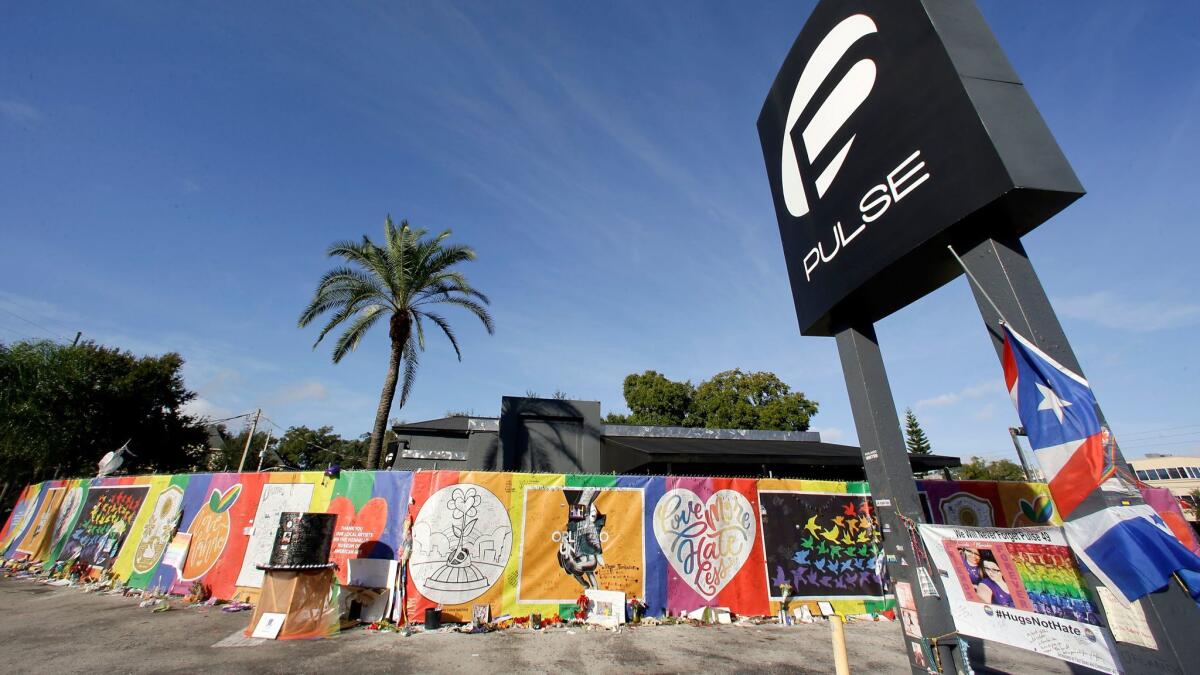Editorial: Trump must prove that he supports ‘our LGBTQ citizens’

Among the many constituencies viewing the presidency of Donald Trump with apprehension are gay, lesbian and transgender Americans, who are disturbed by what they’ve heard from members of the president-elect’s inner circle and by language in the Republican platform.
Vice President-elect Mike Pence, for example, has espoused troubling views on issues of importance to the gay community. As a member of Congress, for instance, he supported a constitutional amendment to outlaw same-sex marriage, warning that “societal collapse was always brought about following an advent of the deterioration of marriage and family.” As governor of Indiana, Pence signed a “religious freedom” bill that many feared would allow businesses to discriminate on the basis of sexual orientation (though he later signed a revised version making it clear that businesses couldn’t deny services to anyone based on sexual orientation or gender identity).
Then there’s the platform adopted by the Republican National Convention this past summer, which condemns the Supreme Court’s 2015 decision extending the constitutional right to marriage to same-sex couples. The platform calls the decision a “lawless ruling” and (quoting the late Justice Antonin Scalia) a “judicial putsch.” The document also supports the appointment of justices and judges “who respect the constitutional limits on their power and respect the authority of the states to decide such fundamental social questions” as whether to recognize same-sex marriage.
Trump must oppose efforts in Congress to curtail the rights of gay, lesbian and transgender Americans.
Of course, party platforms don’t bind presidents. And Trump himself has sounded an encouragingly different note in discussing issues of importance to gay, lesbian and transgender Americans.
In his acceptance speech at the Republican National Convention, he referred to the attack at a gay nightclub in Orlando and promised: “As your president, I will do everything in my power to protect our LGBTQ citizens from the violence and oppression of a hateful foreign ideology.” In response to applause he added: “And I have to say, as a Republican, it is so nice to hear you cheering for what I just said.”
Earlier this year, Trump criticized a North Carolina law requiring people to use restrooms in public buildings that match the gender on their birth certificate — even if that doesn’t match their actual gender identity.
More recently, in a post-election interview with “60 Minutes,” the president-elect indicated that he had no intention of using his appointments to the Supreme Court to undo the court’s ruling in favor of same-sex marriage. “It was settled in the Supreme Court,” Trump said, adding: “I’m fine with that.”
Of course, equality for gays and lesbians isn’t the only issue on which it is hard to reconcile Trump’s statements with the positions of the men and women he has appointed to his administration. But it is an issue on which clarity is vitally important. The new president can resolve any confusion by taking action early in his administration to demonstrate that he was serious when he reached out to gay, lesbian and transgender people.
First, Trump should announce that — contrary to the wishes of some of his supporters in Congress — he will leave in place an executive order issued by President Obama in 2014 telling federal contractors that they may not discriminate in hiring on the basis of sexual orientation or gender identity.
The new president also should make it clear that he doesn’t support efforts in Congress to enact a “religious freedom” exception to that directive that would allow church-related groups to engage in such discrimination. The exception would permit them to reject job applicants who don’t share the organization’s “religious tenets.”
Trump also must oppose efforts in Congress to curtail the rights of gay, lesbian and transgender Americans. That means he should be prepared to veto a new version of the so-called 1st Amendment Defense Act. That legislation would prevent the federal government from penalizing any person “on the basis that such person believes or acts in accordance with a religious belief or moral conviction that marriage is or should be recognized as the union of one man and one woman, or that sexual relations are properly reserved to such a marriage.” The 1st Amendment protects freedom of speech and the free exercise of religion — but not the right to discriminate.
Conversely, Trump should lend his support to perennial efforts in Congress — most recently in a bill called The Equality Act — to protect employees in the private sector from discrimination on the basis of sexual orientation or gender identity. If he meant what he said in his acceptance speech about protecting “our LGBTQ citizens,” he can do no less. Protecting gay, lesbian and transgender Americans involves more than shielding them from terrorism; it also means affording them a right to earn a living without fear of discrimination.
Follow the Opinion section on Twitter @latimesopinion and Facebook
More to Read
A cure for the common opinion
Get thought-provoking perspectives with our weekly newsletter.
You may occasionally receive promotional content from the Los Angeles Times.










